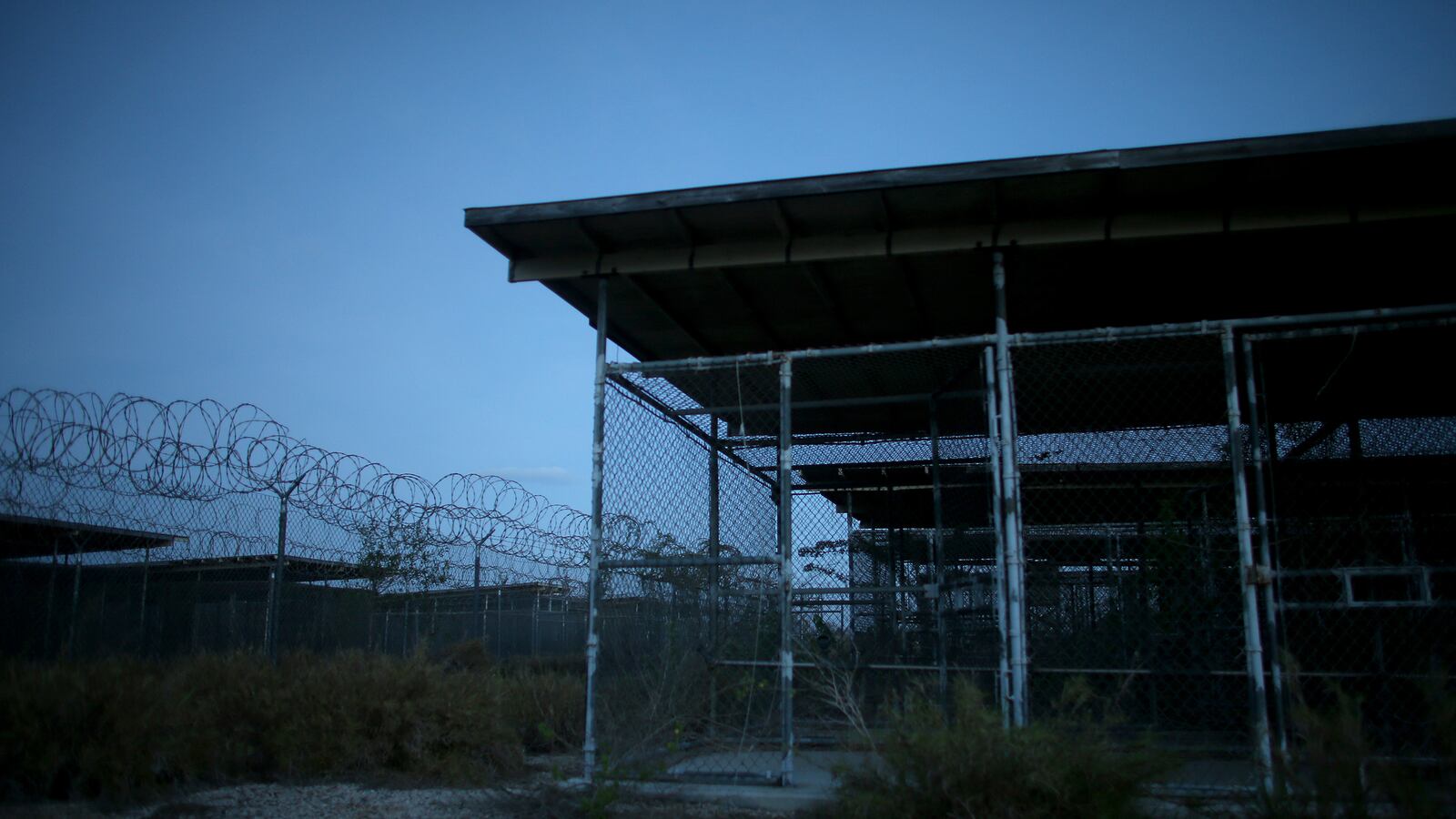A group of Virginia congressmen have a new plan to fix the current state of Guantánamo Bay, and it doesn’t look like anything we’ve seen from the White House.
Sen. Tim Kaine, Rep. Jim Moran, and Rep. Gerry Connolly, all Democrats, along with Republican Rep. Frank Wolf, are considering proposing new legislation that gives up on plans to bring Guantánamo detainees to the U.S. for trial and instead brings the trial to them.

The four devised the idea during a privately chartered trip to Guantánamo last Friday. Accompanied by the Pentagon’s chief of detainee policy, William Lietzau, the congressional delegation visited the three detention camps that hold the likes of Khalid Sheikh Mohammed and others reported to be the “worst of the worst” of enemies to the United States.
The possibility of trying detainees at Guantánamo “is something that the four of us talked about on the way back,” Connolly told The Daily Beast. “That’s the value of the bipartisan basis of the four of us going down there. And we instantly go to, ‘Well, maybe there are some things we could do.’”
The plan would be an alternative to bringing the 166 detainees remaining at Guantánamo to the U.S. for trial—something President Obama has advocated since the beginning of his presidency and reiterated in a speech last May. The president’s push has met much opposition, namely, Congress’s resistance to closing the camp and moving any prisoners to the U.S.
The Virginia congressmen’s alternative plan would set up an Article III court, that is, a civilian court in which a civilian judge would be sent down from the United States to oversee individual trials of all of the detainees currently considered eligible for the court system.
“I think that might be one way of bridging the current gap ... I don’t think that’s the ultimate or optimal solution, but it would move us a step in the right direction,” Connolly said. “Indefinite detention is not a principle of American jurisprudence. A fair trial and a speedy trial is part of the American tradition and is nothing we need to be afraid of in our own tradition. We either have confidence in our system of juries or we don’t.”
Moran, who orchestrated the trip to Guantánamo, said the decision to consider such legislation came after many failed attempts on his part to pass amendments in Congress that would lift the restrictions currently keeping detainees from being moved to the U.S.
“I’ve been trying to get amendments passed to the appropriations bills and the defense authorization bill to close it down, and it’s just not going to happen. If I’m lucky I get 175 votes with me,” Moran told The Daily Beast.
Believing that the detainees deserved some type of trial instead of the indeterminate limbo many of them have faced for more than a decade, Moran has now given up on the possibility of moving the detainees to the United States and is favoring travel in the other direction.
“If we aren’t going to close it down, I think we have to find a way to deal with the prison population—and I think the best way would be to try them under civilian law,” Moran continued. “It’s the best of the worst alternatives.”
Congressional resistance to bringing the remaining detainees to the United States is backed by most conservative members and some liberals. The arguments stem from two directions. First, there is a firm resolve to keep Guantánamo open because of the supposed benefits it offers. Second, there is the fear of what might happen if the enemy combatants were brought to the country they so passionately fought to harm.
“If you were to bring some of these people to the U.S., that would be very, very dangerous,” Wolf told The Daily Beast. “I do not favor closing down Guantánamo and moving them to the U.S. And if you look at the recidivism rate, it’s anywhere between 20 and 30 percent, and that’s a tricky number.”
But the new idea hatched during last Friday’s trip even has the sole Republican’s support.
“I think you could have an Article III court sit in at Guantánamo. Again, I do not want to bring these people to the United States, but it may be a compromise,” Wolf said. “It’s not asking a judge too much to go down and serve in Guantánamo Bay. It may be better—they move faster—it may be more organized. Military commissions for various reasons have not been very successful.”
The congressmen are still in talks with their teams about how to craft such a bill. Wolf says it’s unlikely anything will be done before the August recess.
On Friday the White House announced that two Guantánamo prisoners will be transferred to Algeria. The State Department and its newly appointed special envoy to the Office for Guantánamo Closure, Clifford Sloan, will continue to face an uphill battle transferring detainees, as the majority of those who are left are considered the hardest cases. Many argue that the remaining detainees cannot return to their home countries because they face threats of torture, or the countries do not have adequate prison facilities for them.






